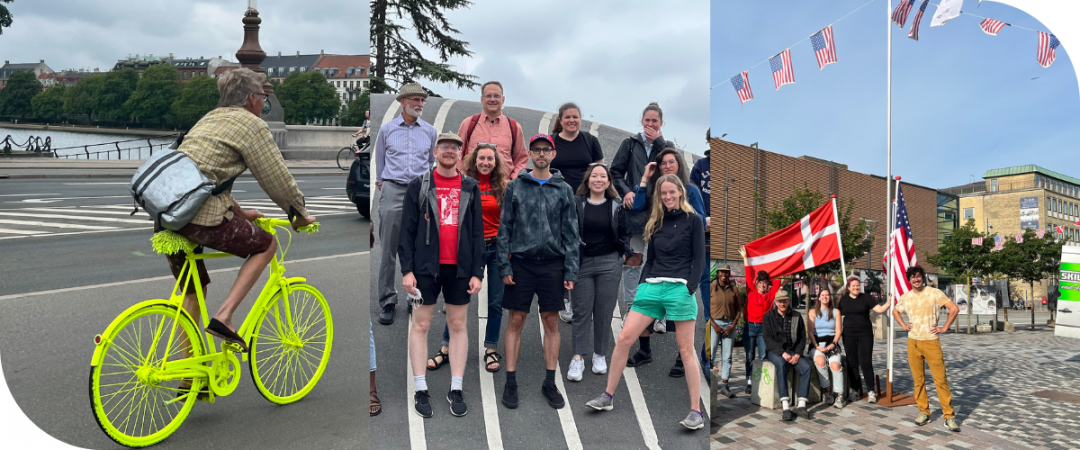About
Portland State University (PSU) and the Initiative for Bicycle and Pedestrian Innovation (IBPI) present an introduction to sustainable transportation and land use applications in the context of Denmark through a two-week study abroad program in the summer 2026 term.
Program dates: June 20–July 4, 2026
APPLY BY FEBRUARY 24, 2026
An information session was held via Zoom on December 4, 2025. Watch the recording here.
Scholarships: $2000 scholarships are available for the first ten Portland State University (PSU) students to apply.
The course creates an immersive experience to explore European approaches to cycling, transit, innovative mobility, and land use. The curriculum will feature material that provides a comparison between the U.S. and Denmark in terms of problems, priorities, and solutions. Specific emphasis on planning and engineering principles, policy, and practice will be explored through field trips, tours, and guest lectures, while visiting near by areas. Students completing this course will develop a broader understanding of sustainable transportation issues and expand their toolkit for context-sensitive solutions. Taught in a study-abroad format in a European nation, this course examines how the urban areas and transportation systems of that nation have been designed to promote transportation by foot, bicycle, and public transportation. Through design projects, students have an opportunity to apply lessons learned to the U.S. context. You'll learn:
- Design of bikeways, safe pedestrian crossings, and transit systems;
- Urban expansion and land-use policies to promote travel by foot, bike, and public transport;
- Smart cities programs and projects;
- Roadway system design for safety and to prevent roads from becoming barriers to walking and cycling; and
- Design for transit priority on roadways and for high-quality rail, tram, and bus service.
- No previous language study required.
If you have specific questions, please email John MacArthur.
We've been hosting sustainable transportation study abroad courses for several years, in the Netherlands, Sweden and Denmark. Read a recap of the 2024 course, or see photos from past years. Interested in future study abroad opportunities? Sign up here to be notified.
This course is offered through our Initiative for Bicycle and Pedestrian Innovation program.




